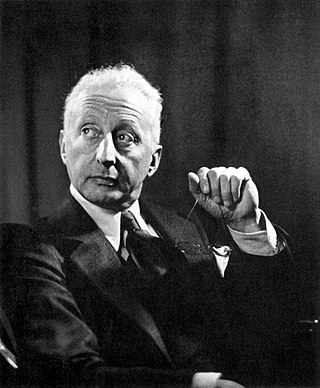
Jerome David Kern was an American composer of musical theatre and popular music. One of the most important American theatre composers of the early 20th century, he wrote more than 700 songs, used in over 100 stage works, including such classics as "Ol' Man River", "Can't Help Lovin' Dat Man", "A Fine Romance", "Smoke Gets in Your Eyes", "The Song Is You", "All the Things You Are", "The Way You Look Tonight" and "Long Ago ". He collaborated with many of the leading librettists and lyricists of his era, including George Grossmith Jr., Guy Bolton, P. G. Wodehouse, Otto Harbach, Oscar Hammerstein II, Dorothy Fields, Johnny Mercer, Ira Gershwin and Yip Harburg.

Irving Berlin was an American composer and lyricist. His music forms a large part of the Great American Songbook.

Yaphank is a hamlet and census-designated place (CDP) in Suffolk County, New York, United States. The population was 5,945 at the time of the 2010 census.
"God Bless America" is an American patriotic song written by Irving Berlin during World War I in 1918 and revised by him in the run up to World War II in 1938. The later version was notably recorded by Kate Smith, becoming her signature song.
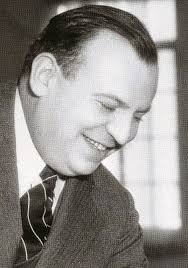
Alexander Dubin was an American lyricist. He is best known for his collaborations with the composer Harry Warren.
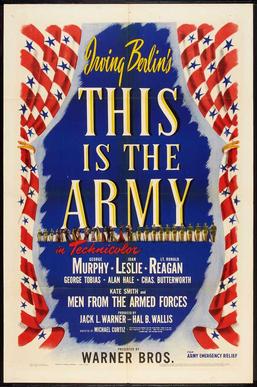
This Is the Army is a 1943 American wartime musical comedy film produced by Jack L. Warner and Hal B. Wallis and directed by Michael Curtiz, adapted from a wartime stage musical with the same name, designed to boost morale in the U.S. during World War II, directed by Ezra Stone. The screenplay by Casey Robinson and Claude Binyon was based on the 1942 Broadway musical written by James McColl and Irving Berlin, with music and lyrics by Berlin. Berlin composed the film's 19 song and singing one of them.

Camp Upton was a port of embarkation of the United States Army during World War I. During World War II it was used to intern enemy aliens. It was located in Yaphank, New York in Suffolk County on Long Island, on the present-day location of Brookhaven National Laboratory.
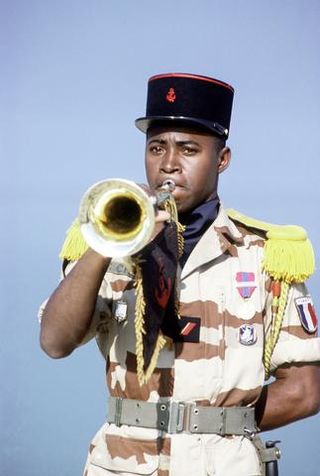
A bugle call is a short tune, originating as a military signal announcing scheduled and certain non-scheduled events on a military installation, battlefield, or ship. Historically, bugles, drums, and other loud musical instruments were used for clear communication in the noise and confusion of a battlefield. Naval bugle calls were also used to command the crew of many warships.
Harry Akst was an American songwriter, who started out his career as a pianist in vaudeville accompanying singers such as Nora Bayes, Frank Fay and Al Jolson.
Yippee, Yappee and Yahooey is a Hanna-Barbera animated television series that premiered September 16, 1964. It was presented as a segment of The Peter Potamus Show, along with Breezly and Sneezly and Peter Potamus.
Margaret E. Lynn formalized U.S. Army entertainment, beginning in Korea in the 1950s. Building on the tradition of Civil War camp shows, and a military show Yip Yip Yaphank created by Irving Berlin as a soldier in World War I, she eventually developed the U.S. Army Entertainment program, inspiring, supporting, and coordinating theatrical and music programs at Army bases worldwide.
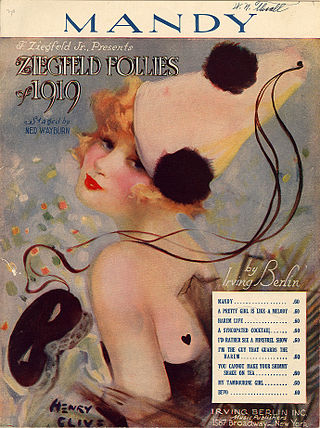
"Mandy" is a popular song by Irving Berlin, published in 1919.

The Lost Battalion is the name given to the nine companies of the US 77th Division, roughly 554 men, isolated by German forces during World War I after an American attack in the Argonne Forest in October 1918. Roughly 197 were killed in action and approximately 150 missing or taken prisoner before the 194 remaining men were rescued. They were led by Major Charles W. Whittlesey. On 2 October, the 77th launched an attack into the Argonne, under the belief that French forces were supporting their left flank and two American units including the 92nd Infantry Division were supporting their right. Within the 77th sector, some units, including Whittlesey's 308th Infantry, were making significant headway. Unknown to Whittlesey's unit, the units to their left and right had been stalled. Without this knowledge, the units that would become known as the Lost Battalion moved beyond the rest of the Allied line and found themselves surrounded by German forces. For the next six days, suffering heavy losses, the men of the Lost Battalion and the American units desperate to relieve them would fight an intense battle in the Argonne Forest.
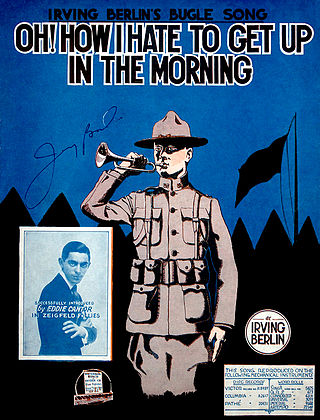
"Oh! How I Hate to Get Up in the Morning" is a song written by Irving Berlin in 1918 that gives a comic perspective on military life. Berlin composed the song as an expression of protest against the indignities of Army routine shortly after being drafted into the United States Army in 1918. The song soon made the rounds of camp and became popular with other soldiers, partly because hatred of reveille was universal.
Miss 1917 is a musical revue with a book by Guy Bolton and P. G. Wodehouse, music by Victor Herbert, Jerome Kern and others, and lyrics by Harry B. Smith, Otto Harbach, Henry Blossom and others. Made up of a string of vignettes, the show features songs from such musicals as The Wizard of Oz, Three Twins, Babes in Toyland, Ziegfeld Follies and The Belle of New York.
The 152d Depot Brigade was a training and receiving formation of the United States Army during World War I, and was successively commanded by Brigadier Generals George W. Read, John E. Woodward, George H. Estes, George D. Moore, Edward Sigerfoos, and William Jones Nicholson.
William Horne was an American operatic tenor who, after World War II, performed with the New York City Opera. He was born in Manhattan, New York.

This Is The Army is an American musical revue in two acts, designed to boost morale in the U.S. during World War II, with a book by James McColl and music and lyrics by Irving Berlin. It was produced by the U.S. Army on Broadway in 1942, with a cast of U.S. soldiers, for the benefit of the Army Emergency Relief Fund.
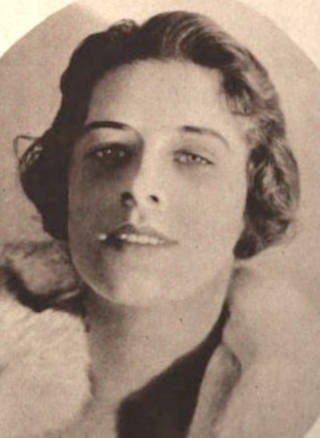
Florence Timponi Jennings, born Florence Lucille Timpone, also known as Melva Talma, was an American singer, actress, Ziegfeld girl, and vaudeville performer, billed as "the Sunshine Girl".















